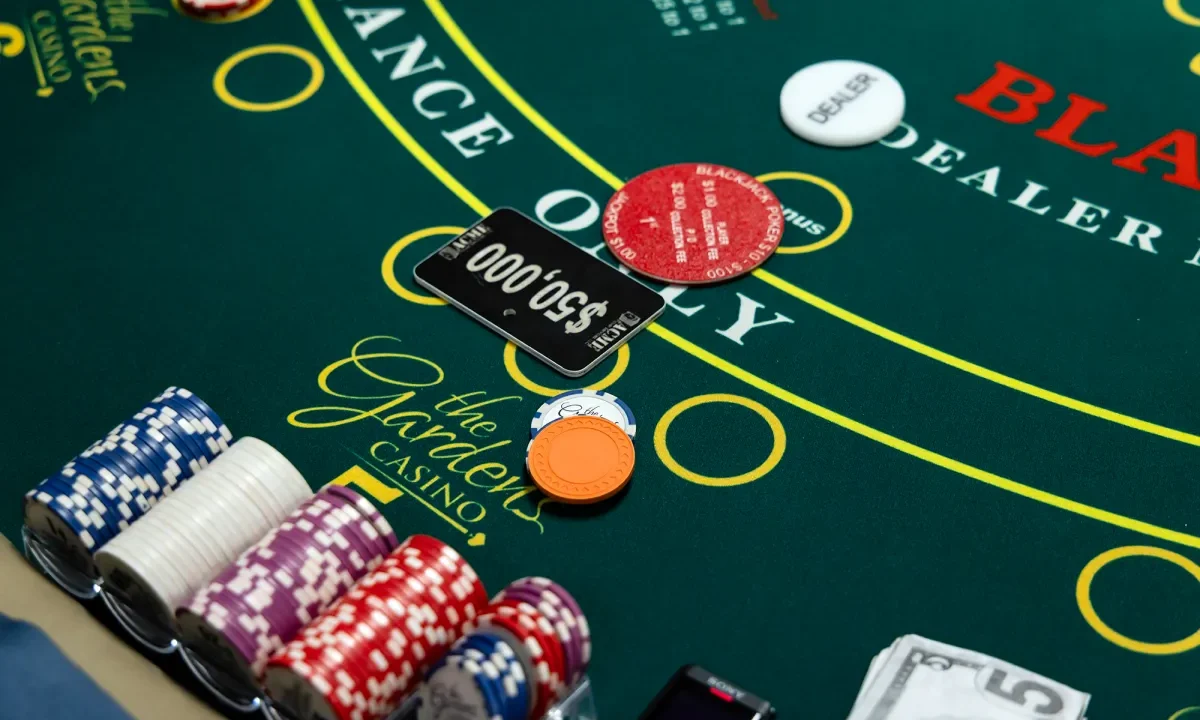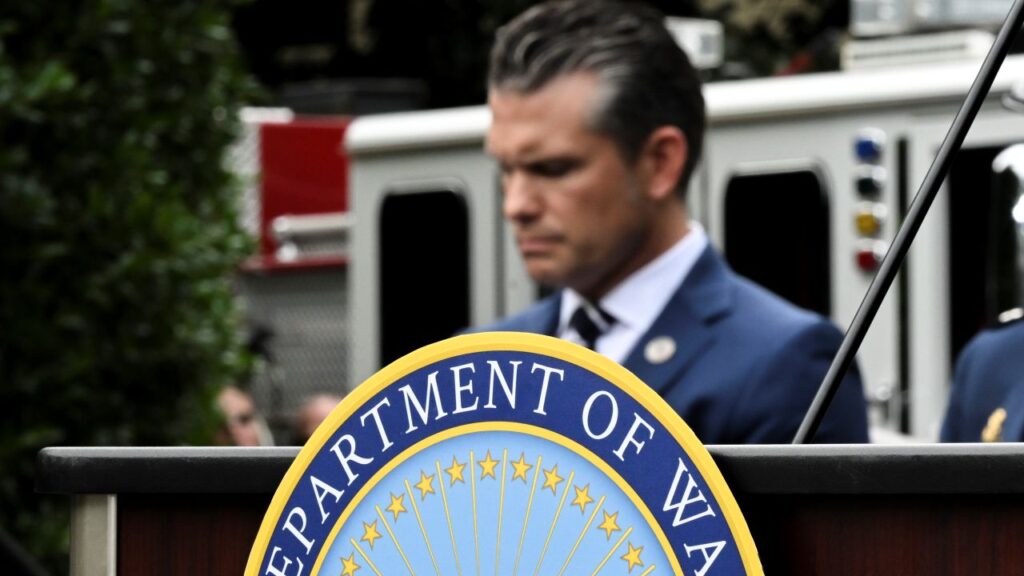Local California cardrooms such as those in Fresno and Clovis win a big court case. The verdict allows them to keep offering games such as blackjack and pai gow poker. (CalMatters/Ted Soqui/File)

- Superior Court Judge Lauri Damrell dismisses the tribes’ case, saying federal gambling law superseded the measure signed by Gov. Newsom.
- Sme cities receive nearly half of their budgets from taxes on card rooms, meaning a tribal victory would have jeopardized money for police, firefighters and other local services.
- The tribes alleged that the dozens of gambling halls were illegally offering card games such as blackjack and pai gow poker.
Share
|
Getting your Trinity Audio player ready...
|
This story was originally published by CalMatters. Sign up for their newsletters.
Over the years, casino-owning tribes have spent millions in court, in the Legislature and at the ballot box trying unsuccessfully to force their only competitors out of California’s casino business.
A judge on Friday, Oct. 10, blocked their latest effort.
Last year, tribes persuaded the California Legislature and Gov. Gavin Newsom to allow them to sue gambling halls called card rooms over the tribes’ claim that they have exclusive rights to offer Las Vegas-style gambling in the state.
Since the tribes are sovereign governments, they had lacked standing to sue the private businesses until Newsom signed Senate Bill 549, which gave the tribes one shot this year to resolve their dispute in Sacramento County Superior Court.
Superior Court Judge Lauri Damrell dismissed the tribes’ case, saying federal gambling law superseded the measure Newsom signed.
“The court is mindful that previous efforts to resolve this longstanding dispute – whether through regulatory action, legislation, ballot initiatives, or litigation – have been unavailing,” Damrell wrote in a tentative ruling that she approved during a hearing. The court “recognizes the genuine desire, shared by many stakeholders, including the California Legislature, to reach the merits and achieve a final resolution. The court does not take lightly the importance of the issues at stake and, were it within its authority to provide a definitive resolution, it would endeavor to do so.”
Still, Damrell wrote she was “bound by the limits of federal law.”
California’s card room industry applauded the ruling.
“We are encouraged by today’s decision,” California Gaming Association President Kyle Kirkland said in a written statement. “Our member cardrooms will continue to support good jobs, vital public services, and local economies across California while upholding the highest standards of integrity, accountability, and compliance.”
Tribes say they strongly disagree with the court’s decision and plan on appealing it.
“This outcome is especially troubling given that it was a state law enacted just last year that explicitly gave tribes standing in state court,” James Siva, chairperson of the California Nations Indian Gaming Association, said in a written statement. “It’s difficult to reconcile this ruling with the clear intent of the Legislature, and once again, a court has sidestepped the actual merits of the case — effectively denying tribes a fair opportunity to seek justice.”
Tribal Revenues vs. City Taxes
The tribes sued on Jan. 2, the first day the courts were open and the day after SB 549 took effect.
The tribes’ suit alleged that the dozens of gambling halls scattered across California were illegally offering card games such as blackjack and pai gow poker that cut into the tribes’ gambling revenues.
“Defendants brazenly profit from illegal gambling,” the tribes said in the opening line of their lawsuit.
Tribes say California voters years ago gave them the exclusive rights to host table games, which they use as a critically important source of revenue to support their historically disenfranchised communities.
Under the bill, tribes cannot receive any money or attorneys’ fees from the lawsuit. Instead, they could only petition the court to decide whether card rooms can continue to offer the disputed games.
The stakes are high outside of casinos since some cities receive nearly half of their budgets from taxes on card rooms, meaning a tribal victory in court would have jeopardized money for police, firefighters and other local services.
San Jose City Councilmember Sergio Jimenez told lawmakers last year that the city receives $30 million each year from card rooms, enough to fund 150 police officers or 133 firefighters. Jimenez said that money’s in jeopardy if the tribes prevail in court.
The card room industry claims the games are legal and that the attorney general’s office has approved each of them over the years.
The tribes have tried to sue card rooms for unfair business practices before. But California’s courts have ruled that the tribes don’t have standing.
“There is little doubt that commercial cardrooms are flouting the law by offering illegal games and operating outside the bounds of state regulations,” Siva said in today’s statement. “All we have ever sought is a clear judicial determination on whether these practices are lawful under state law. That is not an unreasonable ask — and tribes should not be denied their day in court.”
An Expensive Political Fight
The fight over SB 549 was one of the most costly political battles of the two-year legislative session that concluded last year.
A bipartisan coalition of lawmakers, many of them with large tribal casinos in their districts, pushed for the gambling measure, while a smaller group of lawmakers with card rooms in their districts opposed it.
It followed a failed 2022 sports betting initiative that the tribes spent millions of dollars to sponsor and that included a similar provision that would have let the tribes sue.
The opposing gambling interests donated at least $4.3 million to the 120 members of the Legislature since January 2023, according to the Digital Democracy database.
Facing what they saw as an existential threat, card rooms responded to SB 549’s introduction with a massive lobbying blitz. In 2023, Hawaiian Gardens Casino alone spent $9.1 million on lobbying, the second highest amount reported to state regulators. Only the international oil giant, Chevron Corp., spent more.
Then, despite Newsom signing the law, the card room industry spent more than $3 million in the lead up to the November election in retaliation against four lawmakers who played key roles in the bill’s passage.
Three of the candidates targeted by the card rooms ended up losing, including the bill’s author, Democratic Sen. Josh Newman of Fullerton.
Meanwhile, the tribes’ efforts to push out other gambling competitors from California continued in the Legislature this year.
The Legislature approved Assembly Bill 831 in September. The measure bans online gaming companies from offering digital sweepstakes that the tribes see as another threat to their exclusive rights to gambling.
Newsom hasn’t yet signed the measure into law. He hasn’t indicated whether he will. He has until Monday, Oct. 13, to make a decision.
This article was originally published on CalMatters and was republished under the Creative Commons Attribution-NonCommercial-NoDerivatives license.
RELATED TOPICS:
Categories

Amazon’s AWS Reports Outage After ‘Objects’ Strike UAE Data Center


















